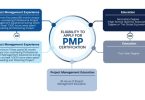The funding speed gap between these financing options stems from their different approval methodologies.
- Traditional lenders navigate complex procedural pathways requiring sequential completion of numerous verification steps. Each stage, from initial application through underwriting, appraisal, title work, and final approval, follows rigid institutional protocols designed for thoroughness rather than speed. This methodical approach typically requires a minimum of 30-45 days, with complicated properties often extending beyond 60 days.
- A Hard Money Lender often accelerates funding by placing more weight on property value than borrower background. Eliminating extensive income documentation requirements, employment verification delays, and complex debt calculation formulas removes major time bottlenecks. Most hard money transactions are completed within 3-10 business days, with some lenders capable of same-week funding in urgent situations where property documentation is readily available.
Approval bottlenecks – Institutional vs. Direct
- Committee decision structures – Traditional loans typically require multiple approval layers with scheduled committee meetings that create inherent timing delays
- Centralized processing centers – Conventional lenders often route applications through regional or national processing facilities, adding communication lag
- Standardized underwriting – Bank loans follow uniform guidelines that leave little room for exceptions or case-by-case evaluation
- Investor approval requirements – Loans intended for secondary market sales require additional verification steps meeting investor criteria
- Regulatory compliance checks – Traditional lenders must navigate comprehensive regulatory requirements that expand processing timelines
Through direct decision-making, hard money avoids these institutional bottlenecks where evaluators often have immediate authority to approve transactions without committee reviews or external authorisations.
Streamlined vs. Comprehensive
The documentation burden varies dramatically between these financing approaches, directly impacting speed to closing. Traditional loans typically require extensive personal financial materials, including:
- Two years of tax returns and W-2s
- Multiple months of bank statements for all accounts
- Detailed documentation of all income sources
- Complete debt verification and payment history
- Employment verification and history
- Explanation letters for any credit inconsistencies
Hard money documentation focuses primarily on the property through preliminary title information, purchase contracts, renovation budgets, and basic borrower identification. This targeted approach eliminates weeks of document gathering, submission, and verification processes that frequently delay conventional loans.
Value verification speed
Property valuation represents a critical timing factor in both financing approaches, but with substantially different processes.
- Traditional lenders typically require formal appraisals completed by approved third-party appraisers following standardized methodologies. This process alone frequently requires 7-14 days from order to delivery, with additional time for underwriter review and potential value disputes.
- Hard money lenders employ accelerated valuation approaches through broker price opinions, in-house evaluation teams, or experienced local market assessments. These streamlined methods often deliver usable valuations within 1-3 days. Some hard money lenders maintain in-house appraisers or valuation specialists who prioritize their transactions, reducing timeline variables that delay traditional financing.
Adaptive vs. Rigid
- Traditional loans follow structured closing schedules with little flexibility for acceleration regardless of preparation status. Conventional loans are sequential, so delays can occur from any component, including underwriting questions and appraisal revisions.
- Hard money closings adapt more readily to transaction needs, with the ability to expedite documentation preparation when all parties are prepared. This flexibility allows acceleration when opportunity requires, with some transactions completing in as little as 48 hours when circumstances demand and property documentation cooperates. This adaptability provides crucial timing advantages in competitive investment scenarios where closing speed directly impacts acquisition success.
Both financing approaches serve different purposes in the property investment landscape, with speed representing just one factor in the broader decision matrix for selecting appropriate funding sources.








Leave a Comment